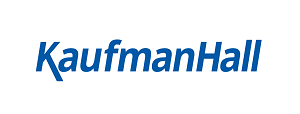This issue of the Financial Sustainability Report, sponsored by Kaufman Hall, provides a broad range of insights and guidance on steps healthcare finance leaders can take to help increase the margins and ensure long-term financial sustainability of their organizations, from case examples of performance improvement issues to expanding the role of clinical pharmacists in ambulatory care.
Labor cost management
Hospitals innovate to control labor costs
By Rich Daly
Hospital labor costs have steadily increased amid consumerism and other trends, but some organizations are finding new ways to address the challenge.
Performance improvement
Main Line Health improves its bottom line by creating a collaborative culture
By Andrew Norton, MD, Lawrence L. Livornese Jr., MD, Matt Magargal, RN, Kathleen J. Goonan, MD, and Apurv Gupta, MD
A multifaceted operations improvement initiative by a Philadelphia health system saved more than $120 million in two years, with half attributed to clinical enhancements. The health system’s approach is exemplified by its success in improving care processes in its four ICUs.
Why reining in wasteful healthcare spending requires more than just reducing costs
By Kermit S. Randa
A 2020 report shows cost-reduction initiatives are a top priority for healthcare finance executives, but these efforts must be balanced with efforts to improve clinical quality and optimize revenue.
Consumerism
HFMA CEO Joe Fifer’s call to action: It’s time for consumerism in healthcare
By Joseph J. Fifer, FHFMA, CPA
The healthcare finance veteran says “everyone has contributed to the current state of affairs and everyone has a role in improving it.”
Pharmaceutical care
How pharmacists can play a role in curtailing the rising cost of drug therapy
By William N. Kelly, PharmD, Kevin B. Sneed, PharmD, Jim Jorgenson, RPh, FASHP, Douglas E. Miller, PharmD, and Elliott M. Sogol, PhD, RPh, FAPhA
Evidence shows improved collaboration between clinical pharmacists and prescribing physicians can help mitigate problems with selection, adherence and overutilization of pharmaceuticals, which cost the nation hundreds of billions of dollars each year.
Strategic planning
Why health systems need a hybrid strategy to ensure financial sustainability in emerging markets
By David G. Anderson, PhD, and Steve Weylandt, MHA
To achieve a reasonable ROI in today’s market environments where fee-for-services still predominates of value-based payment models, health systems require a coherent and effective “strategy for the middle” that includes building competitive advantage in emerging markets.
Revenue Cycle Automation
The role of intelligent automation in reducing waste and improving efficiency in the revenue cycle
By Dan Hillman
A portion of the wasteful spending in healthcare can be curbed by automating repetitive tasks.
Prior-authorization cost and time burdens increase for providers, report finds
By Rich Daly, HFMA senior writer and editor
Provider burdens from health plans’ use of prior authorization continue to mount amid calls to make the process fully automated.
Community Hospital Margins
Gap between expenses and revenues narrows for community hospitals
By Rich Daly, HFMA senior writer/editor
Community hospital expenses moved closer to revenues between 2014 and 2018, according to the latest industry survey.






